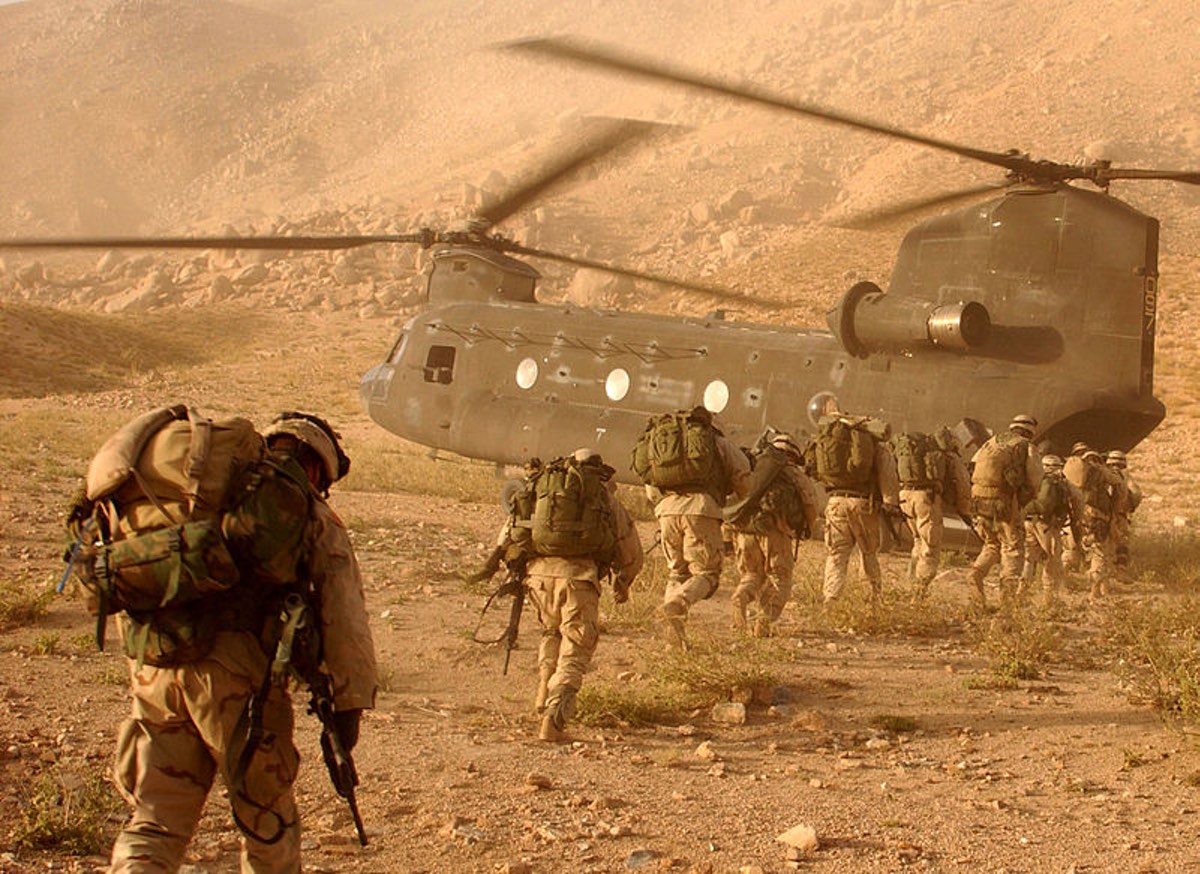(JNS) The last American soldiers are only supposed to leave Afghanistan a month from now, but the Taliban has already reached the capital, Kabul. It is true that the Biden administration thought that, with the withdrawal of U.S. forces, the Taliban would take control of the country within a few months—but they never thought it would happen within a few days.
The sight of the hurried evacuation of the Americans from Saigon, Vietnam, in April 1975, as well as the frenzied flight of thousands of refugees in the face of the advancing Vietcong troops, is now repeating itself in a major way all over Afghanistan, as around a thousand witnesses testify. In Washington, they have not learned anything from history.
There was no more just war than the one American embarked on towards the end of 2001, with the goal of destroying the Taliban regime in Afghanistan. This regime had provided refuge and assistance to Al-Qaeda leader Osama bin-Laden, the man behind the Sept. 11, 2001, attacks, which led to thousands of deaths in New York, Washington and Pennsylvania.The Taliban regime in Afghanistan was oppressive, exactly like that of the Islamic State, which is nourished by the same sources of inspiration. The Taliban jailed women in their homes, banned Western culture and technology, as well as non-religious education, and even barbarically destroyed archaeological treasures from the country’s pre-Islamic history. But there are oppressive regimes in many countries, and the international community does nothing to overthrow them.
But in Afghanistan, and two years later also in Iraq, American ambition knew no bounds. Washington sought not only to punish the Taliban, but also to build an Afghan nation, in a place where the people’s allegiances are to their families or tribes and definitely not to an imaginary nation.
The Americans brought success to Afghanistan, paved roads and developed the economy. They brought the winds of change to many Afghanis, before whom now lay open the possibility of education and employment. But nations are not built, but rather develop and grow organically, and definitely not as a response to foreign dictates. The American experience in Japan and in Germany after World War II is not relevant in the Afghan case, which involves a traditional population, backward and lacking in national identity.
Many Afghans were rewarded by the American presence, but many more were left behind, choosing to prioritize tradition over a foreign and threatening world of Western values and culture.
Above all this, the government that the Americans installed was rotten and corrupt, maintained by dollars and reliant on American bayonets. And all too predictably, the moment the Americans announced their intention to withdraw from the country, the regime collapsed like a house of cards. If the United States had simply struck a blow against the Taliban in 2001 and left the country, two decades of bloodshed might have been avoided.
The United States doesn’t have to worry. It remains a strong and secure power, which at the end of the day is looking to cut its losses. It will continue to thrive even without Afghanistan; North Vietnam went on to become an ally of America, economically reliant upon it (out of fear of China of course).
But one’s heart goes out to the Afghan people, who have fallen to a brutal regime determined to set the country and its people back a thousand years. In any case, no one asks for their opinion, and anyway, they have neither the desire nor the strength to oppose the Taliban.
One can only hope that the 2021 Taliban has learned the lessons of both the 2001 Taliban and ISIS. And who knows? Maybe in the future it will become an ally of Washington, because of its hostility towards Iran and Russia.
Either way, the lesson is clear: In world politics, there are no friends, only interests, and nobody will volunteer to protect someone who is not capable of defending themselves.
This article first appeared in Israel Hayom.

